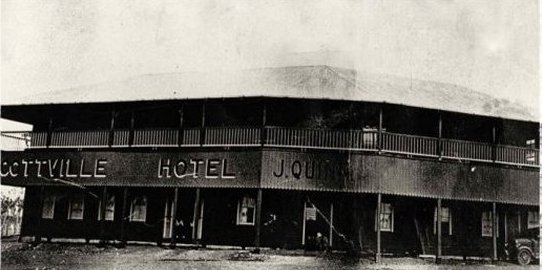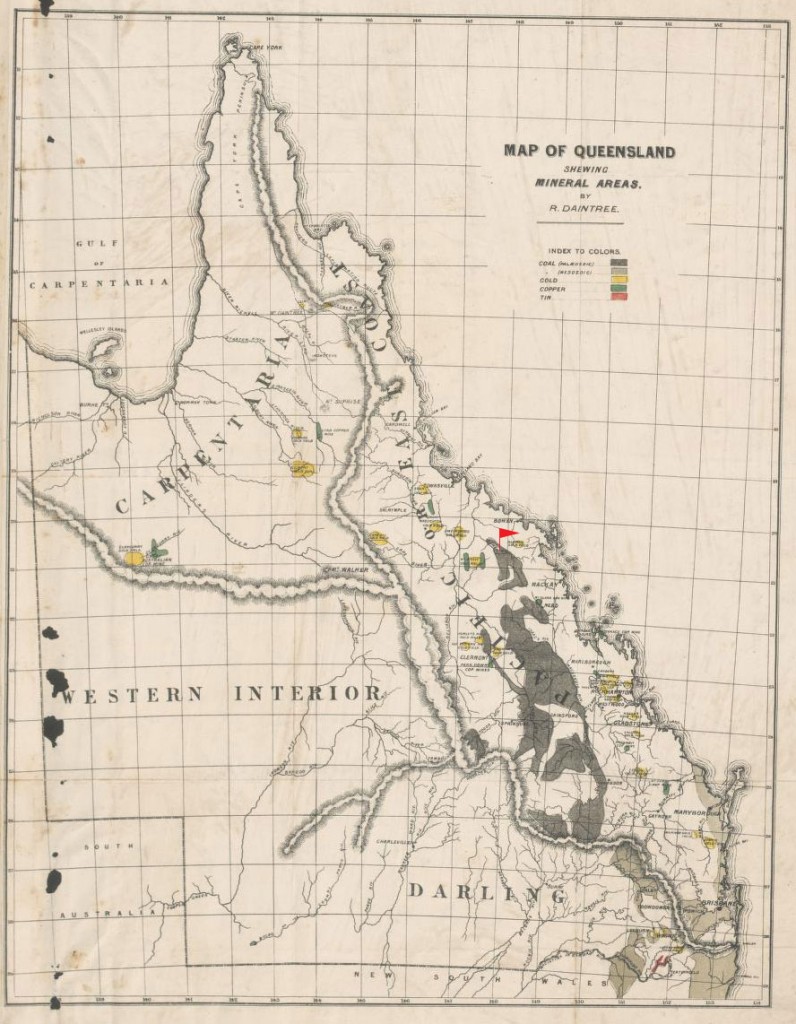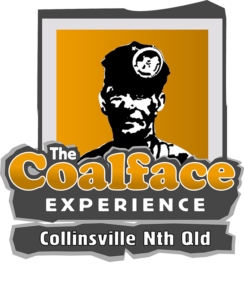A big thanks to Thor Prohaska for his video about Collinsville in the 1960s and the important convoy to Brisbane to save the state owned Collinsville Mine:
A big thanks to Thor Prohaska for his video about Collinsville in the 1960s and the important convoy to Brisbane to save the state owned Collinsville Mine:
Did you know… the 1930s were an exciting decade in Collinsville. The town was growing quickly to accommodate the families arriving. A few interesting facts:
In 1930 the Commonwealth Bank opened and Collinsville and Scottville received reticulated water. In 1934 the hospital became a nurse training school, while in 1936 the Catholic School, St John Boscos opened. Impressive growth for the era of the Great Depression. Sadly this era also saw the burning of the Scottville Hotel (pictured) in 1932 on 5th Avenue.
There are some great recollections about this era in the Interactive Timeline

A bit of history from around Collinsville:
Born in 1879, near Ayr, Arthur Henry Wickham Cunningham bought Strathmore Station in 1902. In 1910 he married Nellie Maud Wharton of Birralee Station. Cunningham was well known as an accomplished horseman and he was involved in several graziers associations across the district.
At the end of World War 1, Cunningham negotiated with the government and purchased four properties on the Burdekin, combining them to create Scartwater. The land was stocked with donated cattle and all profits were contributed to business grants for returned servicemen. The service was extended to help educate the children of these servicemen as well.
Cunningham died in 1942 from injuries caused by a car crash. Today a retirement home in Bowen bears his name.
Moongunya News 1984: New Explosives for CCP Opencut
[in photo: Blast Crew from left: Peter Barding (Drill and Blast foreman), Rodney Watson?, Tom O”Leary, Tony Brunker, Peter Sharp, Ron Van Wyk, Barry Poole (Short firer), Peter Strydon and Ross Hutchinson. ]
Blasting methods at Collinsville Coal Company’s Opencut has been upgraded with the recent purchase of Nonel Primadets and shock tubes.
A Nonel Primadet is a preassembled length of shock tube which transmits a noiseless initiation signal from borehole to borehole. A detonator cap is crimped to one end with the other end sealed.
The shock tube is made of tough plastic with a thin coating of explosive on the inside.
When one end of the tube is initiated, a low level reaction will start in the tube. The reaction in the tube is then carried through to the cap on the primadet.
The explosive reaction in the tube is similar to a dust or gas explosion and propagates with a linear velocity of approximately 6000 feet per second.
Shotfirer Barry Poole said “the primadet reduces surface noise considerably and is the first of its kind to be used in Queensland.”
Did you know… The only ever elected member of the Communist Party of Australia was Fred Patterson – in the Bowen / Collinsville Electorate, 1944. The Communist Party appealed to many unionists as it advocated many of the same socialist ideals. The Australian Coal Strike of 1949 was backed by the Communist party and became the first strike in Australia in which armed troops were called to (possibly due to the looming Cold War and general government concerns regarding Communists).
If you’d like to learn more about the mining industry, the government and the strike of 1949, have a look at this incredible documentary on SBS:
www.sbs.com.au/ondemand/video/11903555530/Dirty-Business-How-Mining-Made-Australia-Promo
In 1866 Richard Daintree was the first geologist to map coal around Collinsville and the Bowen river – this map shows his findings. Wouldn’t he love to see the place today!

The little red flag marks Collinsville.
Phone: 07 4785 5452
17 / 19 Railway Road,
Collinsville, Queensland 4804
Open 7 days
10am to 5pm
Adults: $10
Pensioners: $8
Children: $5


